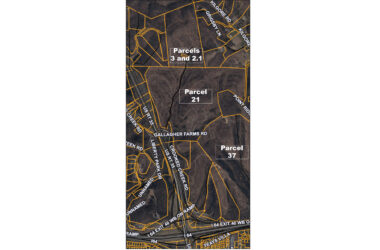Isaiah 6:1-8
The prophet Isaiah was chosen by God to deliver messages of the judgment to come upon Judah and upon the nations surrounding Judah. Isaiah was also given a wealth of revelation concerning the coming Messiah which he relayed to all who had the ears to hear. In the text before us, Isaiah reveals the details of his calling.
Every prophet whose words are part of the holy canon were called by God but not every calling has been preserved as scripture. Isaiah’s calling is scripture because it is an example by which New Testament believers may be empowered to become the agents of God’s will.
Isaiah relates the moment and setting of his call to prophetic service. It was the last year of the reign of Uzziah, king of Judah. By way of vision, Isaiah saw the Lord sitting upon His throne. It was an overwhelming sight. The Lord sat high and His garments filled the temple. Above the throne was a special order of angels called Seraphim which called out “Holy, holy, holy is the Lord of hosts.”
Our curiosities are often piqued by accounts of angelic beings as seraphim and cherubim to the extent that we look beyond the information which is placed before us. Each seraphim possessed three sets of wings. Two wings were used to cover the face, two to cover the feet, and two for flying. While it is possible to suggest reasons that two sets of wings were used for covering purposes, Isaiah was not shown seraphim with the intent that he should understand the anatomy of angels. Isaiah was shown a picture of God’s holiness in preparation of his being called to deliver God’s messages to Judah and to all men.
The seraphim are in the presence of God and continually declare His holiness and His glory. Isaiah may not have understood the details of what he was shown but one thing that he certainly understood was that he was in the presence of God Almighty and that he was unworthy to view the things that he beheld. Isaiah’s reaction was: “Woe is me!” Isaiah confessed that he was a man of unclean lips and that he dwelled in the midst of a people of unclean lips. No man can look upon God and live. Isaiah fully expected to die.
The unexpected happened. One of the seraphim flew to Isaiah with a coal from the altar where burnt offerings were offered up to the Lord. The coal speaks of the sacrifice which was offered for sin. An innocent animal had been sacrificed for Isaiah’s sin. The seraphim touched the coal to Isaiah’s lips and announced that his sins were forgiven. The prophet deserved death but received mercy instead. It was by the grace of God that the animal sacrifice was counted sufficient to take away sin and satisfy the death penalty.
The picture presented to Isaiah and us is easy to understand. Isaiah’s sin was great but the grace of God is greater. The seraphim’s action demonstrated this truth to Isaiah and to us. God wants men to know that His grace is sufficient for all whom come to Him in repentance.
Isaiah stated: “I heard the voice of the Lord” (v. 8). In verse 4, Isaiah reported that the doorposts shook and the house was filled with smoke when the Lord spoke. What a difference! Before his sin was taken away, Isaiah knew that the Lord was speaking but he did not hear what was said. The house was filled with smoke. Isaiah could not see clearly or comprehend the words of the Lord until his sins were removed.
Isaiah heard the Lord ask: “Whom shall I send, and who will go for us?” When the seraphim touched the coal to Isaiah’s lips, his lips were purified. It was with purified lips that Isaiah responded, “Here am I; send me.”
Today, men are called to the Lord’s service in similar manner. The preliminaries are the same. One must recognize his unworthiness before God —even realize that one is deserving of death. One must then realize and accept that his death penalty has been served by Christ Jesus. One must partake of the coal from the altar of sacrifice. Then, and only then, can one listen with a pure heart and receive the plan that God has for him. One cannot hear until one is cleansed.
Isaiah was to “go” and to “tell”. The Lord’s instruction to us is the same — “Go ye therefore, and teach all nations, baptizing them in the name of the Father, and of the Son, and of the Holy Ghost” (Matt. 28:19). Isaiah did not purify himself. God did! Isaiah confessed his sin and let God do the rest. God empowered Isaiah to hear His voice. God empowers each and every believer with the Comforter, the indwelling Holy Spirit. New Testament believers are vessels the Spirit that speaks to and convicts the lost.
The live coal that touched Isaiah’s lips was on the altar waiting to purify him before he confessed. God commended His love toward Isaiah (and us) in that Christ died for us while we were yet sinners (Rom. 5:8). Let us confess such that His Spirit might always lead, guide and direct.



